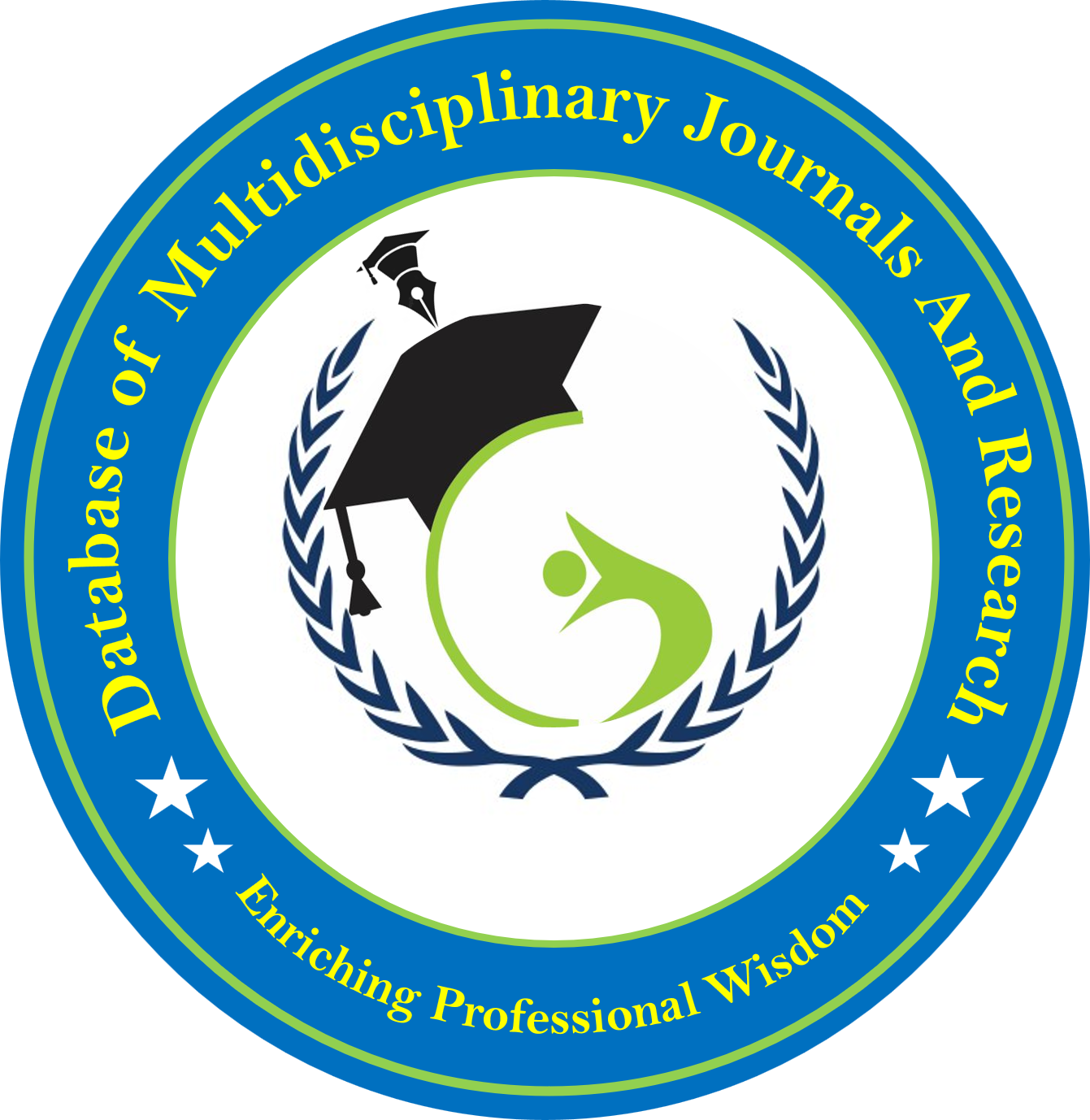Publication Ethics
Database
of Multidisciplinary Journals (DMJR) promotes publication ethics that agree upon
standards of expected ethical behavior for all parties involved in the roles of
authors, journal editors and reviewers.
AUTHORS
S
Originality
and Plagiarism
Manuscripts
of research articles submitted to DMJR must not been published previously and
not be under consideration for publication elsewhere.
The
author(s) must ensure that they have written entirely original works, and if
the author(s) have used the work and/or words of others, this must be
appropriately cited or quoted and listed in the references. Any attempt of
plagiarism, data fabrication/falsification, or citation manipulation will
result in the rejection of the submitted manuscript. DMJR reserves the right to use plagiarism
detecting software to screen submitted papers.
Authorship
All
authors must have agreed to the submission and to the order of their names on
the title page. They must also have agreed that the corresponding author may
act on their behalf throughout the editorial review and publication process.
Human
Subjects
If the
research includes the use of human participants, the author(s) should ensure
that all procedures were performed in compliance with relevant laws and
institutional guidelines.
Authors
must include a statement in the manuscript that approval from an ethics
committee was obtained for any experiments/clinical trials involving human
subjects. Authors must state the approval code in the manuscript.
Disclosure
and Conflicts of Interest
All
funding sources must be disclosed in the acknowledgments and any conflicts of
interest must be stated. All submissions must include disclosure of any
relationship that could be viewed as a potential conflict of interest.
JOURNAL EDITORS S
Publication
Decision
DMJR
accepts only manuscripts which has never been published elsewhere before or is being
considered for publication by another journal. The editorial team is
responsible for deciding which of the manuscripts submitted to the journal
should be published. The editor is guided by the policies of the journal's
editorial board. The editor may confer with other editors or reviewers in
making this decision.
Confidentiality
The
editor and editorial Board Members must safeguard the privacy of the submitted manuscripts
until they are published, except only in the case of doubt of double submission
or the manuscripts that have been under revision or have been published
elsewhere. Confidential information or ideas obtained through the peer review
process must be kept confidential and are not allowed to be used for personal
advantage.
Plagiarism
Plagiarism
is strictly prohibited. Editors must try to scrutinize whether the submitted
manuscript is plagiarized or not by using plagiarism detecting software.
Disclosure
and Conflicts of Interest
All
funding sources must be disclosed in the acknowledgement and any conflicts of
interest must be stated. All submissions must include disclosure of any
relationship that could be viewed as a potential conflict of interest such as
funding organizations, affiliations of all the authors, advisors of the
research project, etc. The corresponding
author must confirm that he/she had the final responsibility for the decision
to submit and had full access to all the data involved in the study.
REVIEWERS
S
Contribution
to Editorial Decisions
Peer
reviewers assist the editors in making a decision to publish a manuscript and
also assist the author(s) in improving the quality of the manuscript.
Confidentiality
Reviewers
have to respect the confidentiality of the review process. They must not
discuss aspects of the work under review with other researchers until such time
as the article is published. Unpublished material disclosed in a manuscript
under review must not be quoted or referenced by a reviewer without the express
written consent of the author(s), requested through the editorial team.
Information or ideas obtained through peer reviews must be kept confidential
and not used for personal advantage.
Standards
of Objectivity
All
manuscripts must be reviewed objectively in the context of the reviewer's
expertise in the field. Personal opinions without backing evidence must not be
used as criteria for review decisions.
Disclosure
and Conflicts of Interest
The
reviewers must not use any information obtained through the peer review process
for personal advantage. The reviewers must not accept to review if they have a
conflict of interest with the author(s), companies, or institutions affiliated
to the manuscripts.




